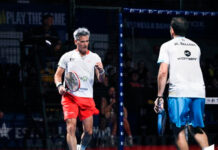Padel World Press .- Fixed thoughts are usually built from childhood and consolidated through praise that emphasizes intelligence. "How well you have done it. How smart you are ". This praise builds a fixed mentality in the child's unconscious and links its success to the intelligence it brings from birth. On the contrary, when the focus is on effort ("How well you have done it. You can tell you've worked hard ") the pillars of a growth mentality are beginning to be laid ... Having a fixed mentality leads people to talk about problems while the growth mindset presents situations like learning difficulties. It is the way to distinguish between 'I am not capable' and 'now I do not have the necessary tools to tackle this difficulty or I have not yet achieved it'.
Account Carol Dweck that in a Chicago school to graduate you have to pass a series of courses and those students who do not get it receive a grade of 'Not yet'. It is a wonderful way to open possibilities for the future. The mentality of growth is based precisely on this, on understanding that we are in a permanent process of learning.
How do we educate children? Do we do it from the spirit of now or from the however? Are we directing the results of now or being able to think big and long term? Are we looking for good children or suitable adults?
If in the business world one of the most frequent complaints is that the new workers only move if they have a reward, will not it be that we continue to stimulate the now instead of however?
El however No. it is the basis of a growth mindset based on a sustained effort over time and continuous improvement. And precisely many studies have shown how, by leaving comfort spaces, and launching into learning zones, neurons create more powerful connections and, without a doubt, we work on children's resistance to abandonment.
As Professor Dweck points out, it is very possible that feeding the fixed mentality is one of the causes of inequality. His studies with marginal population have shown how changing this fixed mentality by a development mentality has allowed transforming disadvantaged contexts and giving opportunities for growth to children destined to drop out.
Some people give up thinking that they do not have enough intelligence or talent to achieve something.
Dweck concludes referring to children from marginalized populations who: “Before, effort and difficulty made them feel stupid and made them want to quit. Now, effort and difficulty make your neurons form new connections, stronger bonds. And they get smarter ”.
* You can follow all the news of the world of paddle in our profiles of Facebook y Twitter as well as subscribe to our Newsletter .













